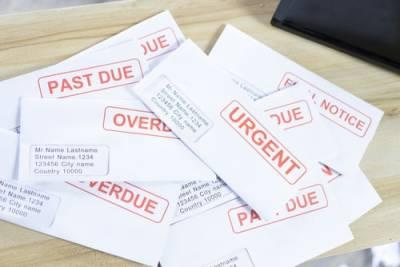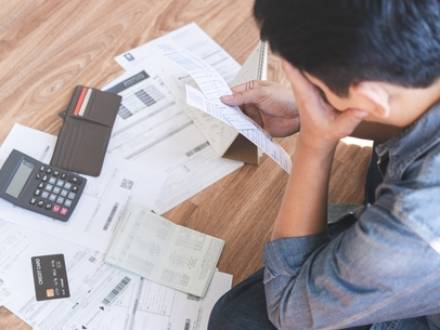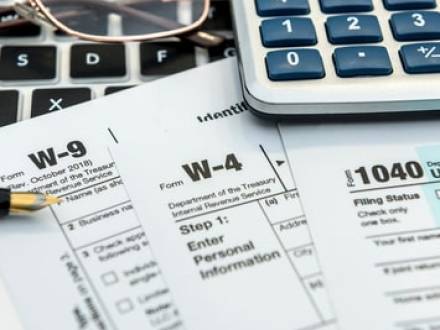Recent Blog Posts
Adversary Proceedings in Bankruptcy
 Sometimes issues or disputes arise in bankruptcy that cannot be resolved through the bankruptcy process itself. These disputes, which require a judge's input, may be resolved through an adversary proceeding. This separate lawsuit within the bankruptcy case is a way for interested parties in the bankruptcy to challenge certain actions with which they disagree. For example, a debtor can file an adversary proceeding to object to a creditor’s violations of the automatic stay halting debt collection efforts. A trustee can bring claims against a debtor objecting to fraudulent transfers of assets, or the trustee may object to the dischargeability of a debt. Creditors can also file an adversary proceeding to object to the discharge of a debt, and for other reasons, as we will discuss below. An experienced Kerrville, TX bankruptcy attorney can represent you in an adversary proceeding in bankruptcy.
Sometimes issues or disputes arise in bankruptcy that cannot be resolved through the bankruptcy process itself. These disputes, which require a judge's input, may be resolved through an adversary proceeding. This separate lawsuit within the bankruptcy case is a way for interested parties in the bankruptcy to challenge certain actions with which they disagree. For example, a debtor can file an adversary proceeding to object to a creditor’s violations of the automatic stay halting debt collection efforts. A trustee can bring claims against a debtor objecting to fraudulent transfers of assets, or the trustee may object to the dischargeability of a debt. Creditors can also file an adversary proceeding to object to the discharge of a debt, and for other reasons, as we will discuss below. An experienced Kerrville, TX bankruptcy attorney can represent you in an adversary proceeding in bankruptcy.
Secured Debt Treated Like Unsecured Debt after Collateral Surrender
 One of the most painful and stressful things about bankruptcy is having to surrender your assets. Whether they include real estate, a vehicle, or other secured debts, surrendering assets to creditors can be difficult emotionally and practically. But what if surrendering collateral could be a positive thing in bankruptcy? In some instances, surrendering collateral rather than keeping the asset can actually be beneficial and may make more sense than you might initially think, as it can help you afford payments on other important assets and give you a chance to discharge that debt. That is true because when you surrender your collateral, your secured debt is treated as unsecured debt–and that makes a big difference in bankruptcy. An experienced Boerne, TX bankruptcy attorney can advise you on whether surrendering collateral to turn secured debt into unsecured debt makes sense in your case.
One of the most painful and stressful things about bankruptcy is having to surrender your assets. Whether they include real estate, a vehicle, or other secured debts, surrendering assets to creditors can be difficult emotionally and practically. But what if surrendering collateral could be a positive thing in bankruptcy? In some instances, surrendering collateral rather than keeping the asset can actually be beneficial and may make more sense than you might initially think, as it can help you afford payments on other important assets and give you a chance to discharge that debt. That is true because when you surrender your collateral, your secured debt is treated as unsecured debt–and that makes a big difference in bankruptcy. An experienced Boerne, TX bankruptcy attorney can advise you on whether surrendering collateral to turn secured debt into unsecured debt makes sense in your case.
Your Voluntary Dismissal of a Chapter 13 Case
 Suppose you filed for Chapter 13 bankruptcy and have regrets. Can you simply end it? Well, according to the Bankruptcy Code, yes you can. It explicitly states that the court will dismiss a Chapter 13 case at the request of the person who filed it, and you can do so at any point during the Chapter 13 process. If you filed a Chapter 13 bankruptcy and think you may want to voluntarily request a dismissal, you could likely benefit from speaking with a San Antonio, TX bankruptcy attorney with extensive experience practicing bankruptcy law.
Suppose you filed for Chapter 13 bankruptcy and have regrets. Can you simply end it? Well, according to the Bankruptcy Code, yes you can. It explicitly states that the court will dismiss a Chapter 13 case at the request of the person who filed it, and you can do so at any point during the Chapter 13 process. If you filed a Chapter 13 bankruptcy and think you may want to voluntarily request a dismissal, you could likely benefit from speaking with a San Antonio, TX bankruptcy attorney with extensive experience practicing bankruptcy law.
Where Does the Bankruptcy Code Say That You Can Dismiss a Chapter 13 Case?
Section 1307(b) of the Bankruptcy Code, which addresses the conversion or dismissal of bankruptcy, clearly states, "on request of the debtor at any time…the [bankruptcy] court shall dismiss a case under this chapter." It is important to highlight the two distinctive elements within this statement.
Can Bankruptcy Help You Avoid Foreclosure in Texas?
 Facing home foreclosure can be emotionally and financially devastating. If you have fallen behind on your mortgage payments, you may be wondering whether filing for bankruptcy will stop the foreclosure process and let you keep your home. This is a complicated question and the answer depends on the facts of your case and the type of bankruptcy you file. A Kerrville, TX bankruptcy lawyer could likely suggest ways to keep you in your home, depending on your specific circumstances.
Facing home foreclosure can be emotionally and financially devastating. If you have fallen behind on your mortgage payments, you may be wondering whether filing for bankruptcy will stop the foreclosure process and let you keep your home. This is a complicated question and the answer depends on the facts of your case and the type of bankruptcy you file. A Kerrville, TX bankruptcy lawyer could likely suggest ways to keep you in your home, depending on your specific circumstances.
Does Bankruptcy Stop Foreclosure in Texas?
When you file for bankruptcy, the "automatic stay" comes into effect. It temporarily prevents your creditors from taking any action on your debts, including from foreclosing on your home. However, this relief only lasts for the duration of the bankruptcy case, which is usually three to six months for Chapter 7 and three to five years for Chapter 13. However, bankruptcy does not eliminate the mortgage–meaning that the lender could foreclose on the home once the automatic stay is lifted if payments are not current. While in Chapter 13 this might not be an issue as you would likely repay your mortgage through the payment plan, in Chapter 7 that is not the case, meaning that a Chapter 7 bankruptcy does not fully stop foreclosure.
Chapter 7 Buys Very Short Amount of Time to Get Vehicle Insurance
 When most people consider Chapter 7 bankruptcy, they usually think about it as a tool to clear overwhelming debt and restart their financial lives. That is certainly accurate, but Chapter 7 also offers other surprising benefits. One lesser-known way that Chapter 7 can help those in financial distress is as a way to buy the bankruptcy filer time to reinstate lapsed vehicle insurance. This is thanks to the automatic stay and its ability to block creditors from repossessing a vehicle — which they can do when the vehicle’s insurance has lapsed. Although this benefit almost always has a short time frame, it can help. An experienced Texas Chapter 7 bankruptcy attorney can provide advice on the benefits of Chapter 7 bankruptcy.
When most people consider Chapter 7 bankruptcy, they usually think about it as a tool to clear overwhelming debt and restart their financial lives. That is certainly accurate, but Chapter 7 also offers other surprising benefits. One lesser-known way that Chapter 7 can help those in financial distress is as a way to buy the bankruptcy filer time to reinstate lapsed vehicle insurance. This is thanks to the automatic stay and its ability to block creditors from repossessing a vehicle — which they can do when the vehicle’s insurance has lapsed. Although this benefit almost always has a short time frame, it can help. An experienced Texas Chapter 7 bankruptcy attorney can provide advice on the benefits of Chapter 7 bankruptcy.
Are You Required to Have Car Insurance?
Almost every state requires vehicle owners to have at least a certain dollar amount of liability insurance coverage. Several states also require personal injury protection (PIP) insurance covering medical expenses from an accident for you, household members, and your passengers, regardless of fault. Still other states require uninsured and underinsured motorist coverage covering you when you are harmed by someone with no insurance or insufficient insurance.
The Surprising Benefits: Break a Tax Payment Plan through Chapter 7
 It is a common problem. You owed income taxes a year or two ago when you sent in your tax returns. Money was very tight so you could not just pay it off. You found out that the Internal Revenue Service lets you pay that unpaid tax through a monthly installment plan. So you set up the payment plan with the IRS. But your financial situation only got tighter because now you had a new monthly obligation you absolutely had to pay.
It is a common problem. You owed income taxes a year or two ago when you sent in your tax returns. Money was very tight so you could not just pay it off. You found out that the Internal Revenue Service lets you pay that unpaid tax through a monthly installment plan. So you set up the payment plan with the IRS. But your financial situation only got tighter because now you had a new monthly obligation you absolutely had to pay.
Now you are struggling to pay the monthly tax payment along with your living expenses and other debts. You wish there was a way to get out of your IRS monthly tax payment and other debts. The good news is that if a significant portion of your debt is an IRS monthly payment plan that you cannot afford, Chapter 7 bankruptcy may help. An experienced New Braunfels, TX bankruptcy attorney can provide guidance on using Chapter 7 bankruptcy to get out of an IRS payment plan you cannot afford.
Can a Debt Collector Garnish My Wages in Texas?
 It is a common myth that debt collectors can garnish a person’s wages when they have not repaid their debts. While this is true in many states across the country, it is mostly not true in Texas. Under Texas law, a person’s wages can be garnished only for very specific reasons, and consumer debt collection is not one of them. If you are in debt and fear that your wages may be garnished, read on to learn more about the law in Texas and contact a San Antonio, TX wage garnishment attorney.
It is a common myth that debt collectors can garnish a person’s wages when they have not repaid their debts. While this is true in many states across the country, it is mostly not true in Texas. Under Texas law, a person’s wages can be garnished only for very specific reasons, and consumer debt collection is not one of them. If you are in debt and fear that your wages may be garnished, read on to learn more about the law in Texas and contact a San Antonio, TX wage garnishment attorney.
What Is Wage Garnishment?
Wage garnishments, also sometimes referred to as wage attachments, are court orders that are sent to a borrower’s employer when they have not repaid their debt. Once the employer receives the order, the employer is then required to withhold a certain amount of money from the employee’s paycheck. The employer must then send the amount that was withheld to the creditor.
What Are Creditors Allowed to Do During Bankruptcy?
 If you are struggling with debt, the calls, letters, and threats from creditors can feel endless. Many people delay filing for bankruptcy because they fear what creditors might do. However, filing for bankruptcy actually provides legal protection that stops most creditor harassment immediately.
If you are struggling with debt, the calls, letters, and threats from creditors can feel endless. Many people delay filing for bankruptcy because they fear what creditors might do. However, filing for bankruptcy actually provides legal protection that stops most creditor harassment immediately.
Bankruptcy is meant to give people a fresh financial start, but that does not mean creditors disappear overnight. They are still allowed to take certain actions, but there are strict rules about what they can and cannot do. Understanding these rules can help ease stress and prevent creditors from taking advantage of you, and our Texas bankruptcy lawyer is here to help.
Get Immediate Protection With an Automatic Stay
As soon as a bankruptcy case is filed, an automatic stay goes into effect under 11 U.S.C. § 362, halting most creditor actions. This legal order stops wage garnishments, lawsuits, collection calls, and other debt-related actions. Creditors must immediately stop contacting you about your debt. If they continue to call or send letters, they may be violating federal law, and you may have legal options to hold them accountable.
What Medical Bills Can You Get Rid of With Bankruptcy?
 Medical debt is one of the most common reasons people consider bankruptcy. Whether from an unexpected hospital stay, an emergency surgery, or long-term medical treatment, medical bills can quickly overwhelm even the most responsible people.
Medical debt is one of the most common reasons people consider bankruptcy. Whether from an unexpected hospital stay, an emergency surgery, or long-term medical treatment, medical bills can quickly overwhelm even the most responsible people.
If you are struggling with unpaid medical bills, you may be wondering: Does bankruptcy cover medical bills? Can you file bankruptcy on medical bills in Texas? The short answer is yes, bankruptcy can often help eliminate medical debt, but the process depends on your financial situation and the type of bankruptcy you qualify for.
Understanding how medical debt is treated in bankruptcy and what happens if you do not pay can help you make informed decisions about your financial future, and our Texas bankruptcy lawyer is here to help.
Can You File Bankruptcy for Medical Bills in Texas?
Medical debt is considered unsecured debt, meaning it is not backed by collateral like a house or car. In both Chapter 7 and Chapter 13 bankruptcy, medical bills can be discharged, meaning you are no longer legally required to pay them.
Can Tax Returns Be Garnished in Texas?
 Receiving a tax refund can provide badly needed money, especially for those struggling with debt. However, during tax season, many people worry that creditors or the government will seize their refund before they ever see it. Texas has strong protections against wage and bank garnishments, but tax refunds are treated differently under both state and federal laws.
Receiving a tax refund can provide badly needed money, especially for those struggling with debt. However, during tax season, many people worry that creditors or the government will seize their refund before they ever see it. Texas has strong protections against wage and bank garnishments, but tax refunds are treated differently under both state and federal laws.
Understanding when and how a tax refund can be taken is important, not only for your peace of mind but so that you can devise a strategy to protect your money. A Texas bankruptcy lawyer can help you explore legal options to protect your income and work toward a fresh financial start.
Can Collectors Take My Tax Refund?
Texas law protects many types of income from garnishment by private creditors, including wages, Social Security benefits, and retirement income. However, tax refunds do not receive the same level of protection.






